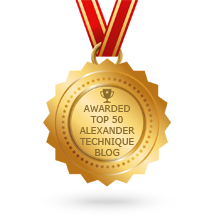Friday, 15 August 2014
You are choosing to read this blog.
Perhaps the
topic interests you; or a friend you trust shared it; or you know me and like
what I write; or you just want to read something to pass the time and the title
caught your attention.
Regardless
of why your’re here, the choice to be here
and read this is yours.
Are you
clear about your purpose? What do you expect to get from this investment of
your time and energy? Are you reading by habit or by conscious choice?
Take a few seconds get
clear about this. It’s important. You’ll soon see why…
I’ve taken
countless lessons and workshops in my life. I didn’t take advantage of some of the
good ones all I’d like to have done; nor did I drop the bad ones as soon as I should
have done. And all because I wasn’t clear what for
and why I was there in the first place.
Why do we go to lessons
and workshops (or read blogs for that matter)?
Because some
limitation is hindering us from enjoying that which
we enjoy doing (dancing, singing, riding horses, taking care of the
grand kids), and we want to help the situation.
Why do we choose a
particular lesson or workshop?
Because it’s
related to our objective (we may be aware of
this or not) and it fits our available resources
(motivation, time, money, energy, knowledge).
How do we know if we’ve
chosen the right lesson or workshop for us?
We can’t
know until we’ve tried it. But if we are clear
about our objective we can evaluate if the lesson or workshop is helping
us go in the direction that we want to go.
Why is it so important
to be clear about our objective?
Being clear
about your goals makes you an active participant
in your learning process. If your ultimate goal isn’t the guide of your
actions, you run the risk of losing focus and
falling into old habits. So ask yourself, is what I’m doing here getting
me closer or pulling me away from my goal?
What if I don’t realize
if I’m moving nearer of further away from my goal?
Take a few
seconds to analyze if your uncertainty is a product of the content of the
lesson, the form and context of the lesson, or both.
1. If the problem is the content of the lesson (it’s not the “take” on the subject
that you were looking for, or the workshop is not about what you were
expecting, or you’re just not understanding what’s going on) but the form
and context is fine, check with yourself to see if you are able to open up
to learning something new.
It may even
be that you’re actually getting the answer you need, but it’s not coming in the
concrete form you were imagining it would come (hence the confusion). If you
have an inkling that this might be the case, suspend judgment until later. You’re
already there, and as long as you’re comfortable with the proceedings and
having a good time, there’s nothing to lose by exploring a new take on your
problem. At the end of the process check with yourself once again to find out
if you actually gained your original goal, or perhaps some other unexpected
goal!
2. If the problema is the form or context in which the lesson
is given (you
disklike the place, atmosphere or teacher, it’s cold, or whatever) but the content
is good, check with yourself to gauge how much you’re able to “stand”
the unfortunate circumstances in order to gain your goal. If the situation is
not all that bad (or it is easily fixable) ignore the slight discomfort and
hold on to what’s good and important for you.
But if you’re
uncomfortable to the point that you’re getting angry or scared for your
physical, emotional or mental integrity, perhaps it’s high time you get out of
there… fast. I’m sure there are other far less traumatic ways of gaining your
end than your current choice of lesson.
3. If the problem is the form or context in which the lesson
is given and, to top it off, the content is not what you hoped it would be, there’s nothing to think about
really, get out of there, go home. Surely there’s far better ways you could be
using your time and energy rather than making yourself stick to something you’re
neither interested in nor liking how it’s taught.
You’ve reached the end
of the blog. This
means that the form, context and/or content of it, wasn’t all that bad. J
Now it’s the
time to analyze, evaluate and decide if it’s worth your while waiting for our
next meeting on the next blog, writing to me with your questions, or sharing
this blog with a friend.
See you next time.
Victoria
--
Victoria Stanham, Alexander
Technique teacher and Pilates instructor.
I study developmental movement,
taking great inspiration from the organic and free movement of the animal
kingdom.
My goal is to achieve comfort,
efficiency, elegance and balance, both in movement and in stillness, according
to our physical, mental and emotional design.
Subscribe to:
Post Comments (Atom)



.jpg)









0 comments:
Post a Comment